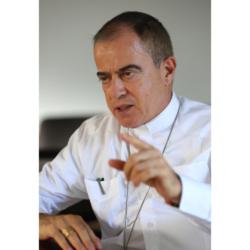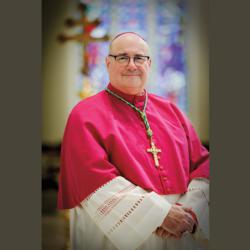Senate passes major online child safety legislation, but future in House uncertain
WASHINGTON (OSV News) -- The U.S. Senate passed two major online child safety reforms July 30, but the bills face an uncertain future in the House.
The bills -- the Children and Teens' Online Privacy Protection Act and the Kids Online Safety Act, sometimes called COPPA 2.0 and KOSA -- were approved by the upper chamber in a bipartisan 91-3 vote. But the legislation faces some criticism from tech industry groups and the American Civil Liberties Union, and it is not yet clear if it would have the necessary support to pass in the GOP-controlled House.
KOSA would create the new obligation of "duty of care," a requirement for social media companies to mitigate potential harms to children. COPPA 2.0 would expand the parental consent requirement for data collection and would ban companies from targeting children with advertising.
Jessica Heldman, a child rights professor at the University of San Diego, a Catholic university, and a member of its Children's Advocacy Institute, told OSV News, "the research is clear that social media puts children at risk."
"They are being bullied, exploited, exposed to drugs and harmful content through platforms designed to keep their attention to the point of causing addiction," she said July 30. "The legislation overwhelmingly passed by the Senate today is an important and long-awaited step toward protecting the safety and well-being of children online. Quite simply, it will save lives."
Sens. Marsha Blackburn, R-Tenn., and Richard Blumenthal, D-Conn., spearheaded KOSA after reporting by The Wall Street Journal that social media companies were aware of risks presented by their platforms to kids, including Instagram's adverse effects on the mental health of teen girls.
Blackburn said in a July 30 statement their legislation "provides young people and parents with the tools, safeguards, and transparency they need to protect against online harms." Blumenthal added, "It will be the first internet safety reform in nearly three decades -- a resounding bipartisan achievement showing democracy still works."
COPPA 2.0, was spearheaded by Sens. Edward Markey, D-Mass., and Bill Cassidy, R-La. In remarks on the Senate floor July 30, Markey said its passage would mean "an end to the manipulative personalized ads that trick young people into purchasing unwanted goods and services." Cassidy said in a statement, "The internet is an integral part of children's lives today. It is time our laws reflect this new reality."
In a statement, President Joe Biden urged the House to follow the Senate's lead.
"Today, the Senate took a crucial bipartisan step forward to make our kids safer online," Biden said July 30. "There is undeniable evidence that social media and other online platforms contribute to our youth mental health crisis. Today our children are subjected to a wild west online and our current laws and regulations are insufficient to prevent this. It is past time to act."
He said his administration "has taken important steps to address the harms of social media and online platforms" but "we need action by Congress to protect our kids online and hold Big Tech accountable for the national experiment they are running on our children for profit."
Biden said the KOSA bill "answers the call from the Unity Agenda of my first State of the Union Address, when I said it was time to strengthen privacy protections, ban targeted advertising to children, and demand tech companies stop collecting personal data on our children."
But groups including the ACLU criticized KOSA, arguing it would censor protected speech.
"KOSA compounds nationwide attacks on young peoples' right to learn and access information, on and offline," Jenna Leventoff, senior policy counsel at the ACLU, said in a statement. "As state legislatures and school boards across the country impose book bans and classroom censorship laws, the last thing students and parents need is another act of government censorship deciding which educational resources are appropriate for their families. The House must block this dangerous bill before it's too late."
The bill's path forward in the House is not yet clear, and the chamber is scheduled to be in recess until September.
Prior to the Senate's passage of the legislation, House Speaker Mike Johnson, R-La., told Axios he is focused on finding consensus in his chamber on the matter.- - - Kate Scanlon is a national reporter for OSV News covering Washington. Follow her on X (formerly Twitter) @kgscanlon.


















